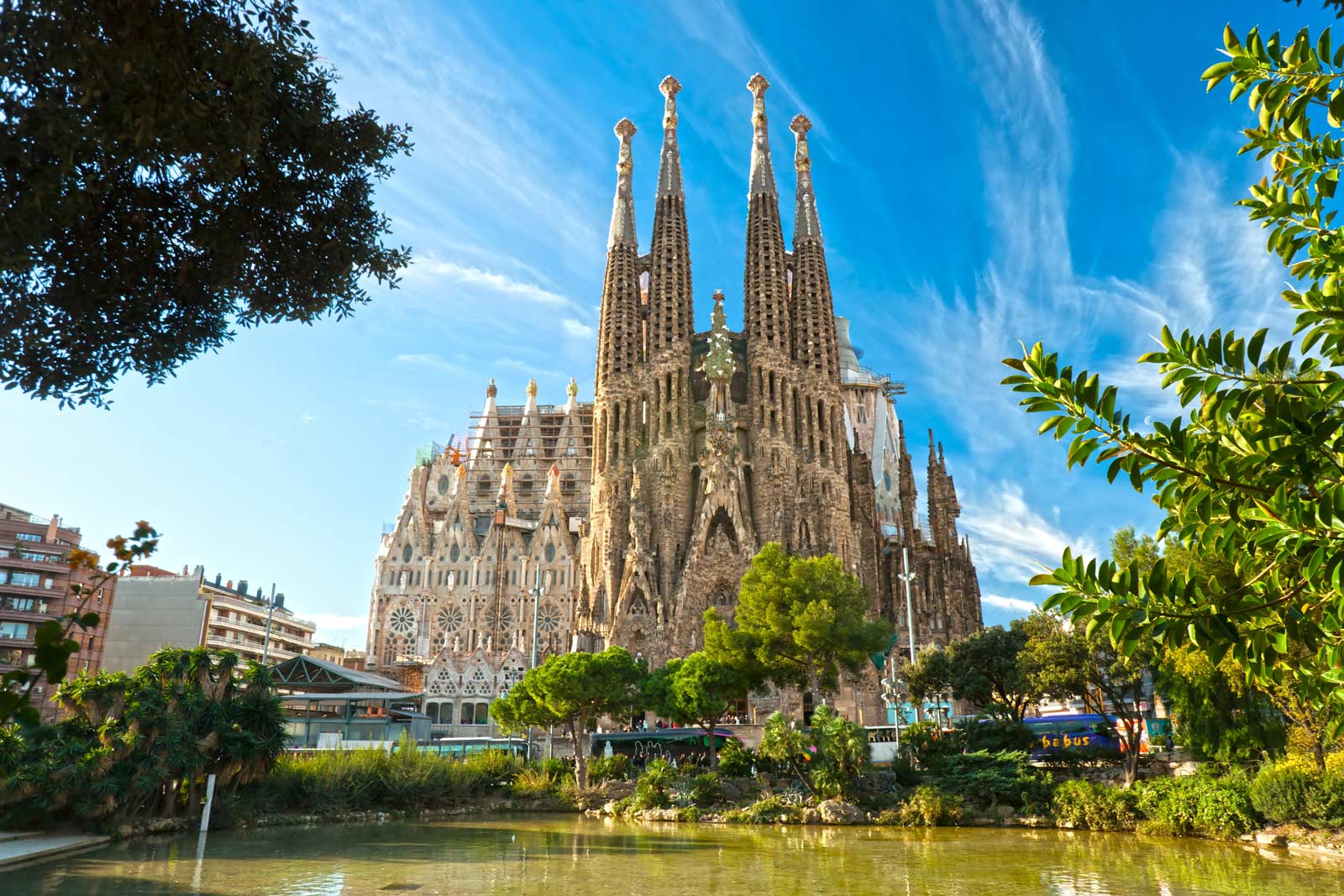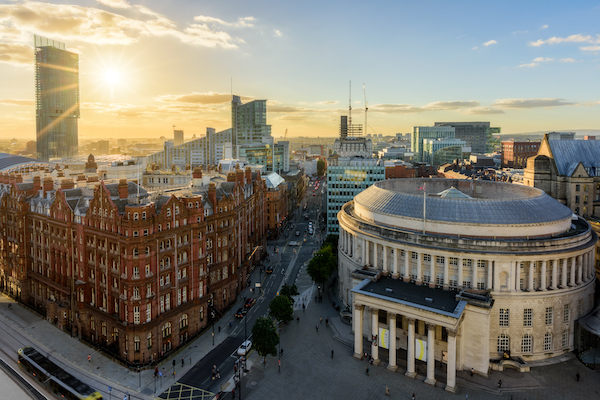26 Best Things To Do In Spain In 2024
So, you want to visit Spain but are unsure of where to stay and make a base, when to visit, or which attractions to prioritize. Never fear, you have come ... Continue Reading Read the original post 26 Best...

So, you want to visit Spain but are unsure of where to stay and make a base, when to visit, or which attractions to prioritize. Never fear, you have come to the right place. This guide on the best things to do in Spain is a collaboration from our many trips to Spain and our team members to help you plan your Spain itinerary!
Historic towns, the country’s best museums, iconic landmarks, and exciting outdoor adventures are just some of the things to do in Spain that you cannot miss. From Bilbao to Cadiz, I’ve left no stone unturned when creating this helpful planner.
Whether you want to explore the best beaches in Spain or marvel at the country’s UNESCO World Heritage Sites, I’ve got loads of ideas. So, let’s dive into all the best things to do in Spain, from the wineries in the north to the Moorish architecture in the south.
Best of Spain Quick Guide
Must See: Dali Museum, The Alhambra, Royal Palace of Madrid, El Retiro Park, Mosque-Cathedral of Córdoba, Park Guell, Casa Batllo Where To Stay: Posada del Dragón (Madrid), Only You Hotel (Malaga), Mercer Hotel (Barcelona) Fun To Do: Winery tours in La Rioja, Ibiza, Mallorca, Flamenco shows, La Tomatina festival Day Trips: Cordoba, Toledo, Seville, Cadiz, Segovia Must-Try Foods: Paella, Tapas, Churros, Jamon IbericoBest Things To Do In Spain
Spain is such a diverse country that anyone can enjoy it. The country’s top attractions include ancient landmarks, luxury resorts, long-distance hiking trails, and some of the world’s best art museums. Just pick one that interests you most, and you’ll be able to enjoy it in at least five different Spanish cities!
1. Winery Tours in La Rioja
La Rioja is a province in northern Spain known for wine production. The best Spanish wines originate from this region and all the best wineries offer tours with tastings.
Bodegas Lecea is one of the best for tours because the wine barrels are stored in underground caves. Bodegas La Rioja Alta, S.A. is also popular for tastings and tours. This winery manufactures some of the highest-quality wines in the country, and you can taste most of them during a tour.
Practical Information: It’s best to book a tour/tasting before your arrival, especially in peak season.
2. Hike the Camino de Santiago
Camino de Santiago (Way of Saint James) is one of the most famous pilgrimages in the world. The network of pilgrim paths stretches through Northern Spain, France, and Portugal, and all the paths lead to the cathedral of Santiago de Compostela.
It is believed that the apostle’s remains are buried in Galicia’s cathedral. The northern city has been the destination for pilgrims since the 10th century, and hiking even a small section of this path is a very rewarding experience. At the very least, visit the famous church on a day trip to experience a small part of this Spanish tradition.
Practical Information: The oldest route of Camino de Santiago is from Oviedo to Santiago de Compostela. It takes approximately two weeks to hike the 300 kilometers through the north of Spain.
3. Climb the Tower of Sagrada Familia
Sagrada Família is an iconic landmark of Barcelona, known for perpetually being under construction. It’s estimated that the works on the church will finally end in 2026, more than 140 years after the construction began.
The (finished) towers of Sagrada Familia are open to the public and offer sweeping views of Barcelona’s rooftops. And because the cathedral is one of the tallest buildings in the Spanish city, it’s one of the best panoramic views to be experienced in Barcelona.
Practical Information: Sagrada Familia is open from 9 AM to 6 PM. The tickets that include a visit to one of the towers are 36€.
4. Take Part in La Tomatina
There are two types of people in the world – those who would gladly participate in La Tomatina and those who would hide in their hotel room until the entire event was over. Buñol’s festival has become iconic over the years, attracting many tourists and locals to the city streets in late August.
La Tomatina is an event during which participants throw tomatoes at each other and engage in tomato fights. Buñol’s main square gets covered with squashed tomatoes and looks like a horror film scene until the fire trucks hose it down. Read more: The Best and Biggest Festivals Around The World.
Practical Information: La Tomatina takes place on the last Wednesday of August every year.
5. Visit the Dali Museum in Figueres
Salvador Dali is one of the most famous artists Spain has ever produced. The legendary artist was born in Figueres, a small town in Catalonia. It’s best to visit Figueres on day trips from Barcelona as the town is only an hour and a half away by public transport.
The Dali Museum is set inside a 19th-century theater, which was designed by the artist. Dali himself set up this museum, and it houses the largest collection of his artworks. For any art lover in Spain, this museum is an absolute must and will likely be the highlight of the entire trip.
Practical Information: Dali-Theatre Museum is open from 10:30 AM to 5 PM every day except Monday. Tickets are 17€.
6. See Gaudi’s Works in Barcelona
Barcelona gets almost as many visitors as the capital, and most of the people who come to visit are there for Antoni Gaudi’s works. The architect is considered a pioneer of Catalan Modernism, and some of his most famous works adorn the streets of Barcelona. Book this highly rated tour of Sagrada, Casas, and Park Guell.
The best one is Sagrada Familia, the imposing cathedral that is still under construction. Park Güell, Casa Batllo, Casa Vicens, and Casa Milla are also worth visiting for their unique architecture. See our guide to the top works of Gaudi you cannot miss here.
Practical Information: It’s best to purchase individual tickets for each of the attractions. Bundles exist but are more expensive than single tickets.
7. Walk Around the Moorish Palace of Alhambra
The Alhambra is a UNESCO World Heritage Site and one of the most important landmarks in Spain. The Moorish palace remains one of the world’s most prominent examples of Islamic architecture, so it’s no wonder it’s one of the most visited landmarks in southern Spain. Read more at 27 Best Things to Do at The Grand Canyon
The palace’s construction began in the 13th century, as ordered by the founder of the Nasrid dynasty. The palace served as the royal residence for the dynasty, who were the last Muslim rulers of Spain. Book this tour in advance
Practical Information: The Alhambra is open for tours from 8:30 AM to 8 PM. The tickets are approximately 20€.
8. Discover Influences of Different Cultures at Toledo
Toledo is known as the City of Three Cultures because of its Arab, Jewish, and Christian monuments from the Middle Ages. It was also El Greco’s home for a while, and it honored the famous artist with a museum dedicated to his works.
The town has UNESCO World Heritage status, and it’s an excellent destination in Spain for travelers interested in the architecture and history of Spain, thanks to mesmerizing medieval buildings and historic landmarks.
Toledo’s top landmarks are Puerta de Bisagra, Alcázar de Toledo, Sinagoga del Tránsito, San Juan de los Reyes Monastery, Santa Iglesia Catedral Primada de Toledo, and more.
Practical Information: Toledo is approximately an hour outside Madrid by bus and train.
9. Beaches of Costa del Sol
Spain’s Costa del Sol is the most popular destination for vacations in the country. With countless towns on the coast of the Mediterranean Sea, all of which offer vast sandy beaches and excellent resorts, limiting yourself to just one destination is out of the question. Especially if you’re in Spain for a limited time.
Our recommendation for Costa del Sol tours is to rent a car and drive from Nerja to Estepona. Malaga and Marbella are the top cities along the way, offering a good mix of tourist attractions and fabulous resorts. A detour to Granada to see the Alhambra is easily done during road trips through Costa del Sol.
Practical Information: Malaga is accessible by train from Madrid in three hours.
10. Try Paella (And Other Spanish Food)
Food is an important part of Spanish culture and Siesta is evidence enough. Where else in the world is it expected of people to stop working and take naps after lunch? Paella, tapas, jamon iberico, churros, and tortillas are just a few of the many dishes you should try while traveling through Spain.
Valencia is one of the best cities in Spain for food tours. Valencian paella is legendary; the region’s climate is perfect for growing rice, so paella has always been a staple meal in Valencian homes.
Practical Information: Gastro tours are widely available in all urban centers in Spain.
11. Discover the Nature of the Canary Islands
Situated just off the western coast of Africa, the Canary Islands are a Spanish archipelago in the Atlantic Ocean. Tenerife is the largest of the seven islands and the most popular destination among tourists in the Canaries. Gran Canaria Island is a close second. Las Palmas de Gran Canaria and Santa Cruz de Tenerife are the two capitals.
Tenerife is known for Teide National Park, the home of Mount Teide. The volcano is the highest mountain in Spain, accessible by hiking trails and cable car. Just keep in mind that it’s an active volcano. I recommend booking a guided tour of the area, just to be on the safe side.
Practical Information: Canary Islands are accessible by flights from Madrid, Barcelona, and Seville.
12. Mingle With The Students in Salamanca
Salamanca is home to the oldest university in Spain. This is also one of the world’s oldest universities that are still in continuous operation. With more than 30,000 students enrolled in the University of Salamanca, it’s not surprising that the place is a proper student town.
A walking tour of the town allows you to discover Salamanca’s golden sandstone buildings with intricate details. Casa de las Conchas, parts of which are covered with seashells, is one of the most famous. Monterrey’s palace, Salamanca Cathedral, and the Roman bridge of Salamanca are a few other noteworthy landmarks in this picturesque Spanish city.
Practical Information: Salamanca is close to Madrid, approximately an hour and 40 minutes by train.
13. Tapas and Flamenco in Seville
As the largest city of Andalusia, Seville is a bustling urban center in southern Spain. Come here to see marvelous historic landmarks, but also to lose yourself in the rhythm of Flamenco and overindulge in the best tapas.
The historic center of Seville is home to a UNESCO World Heritage Site comprising three buildings – Seville Cathedral, Royal Alcázar of Seville, and the General Archive of the Indies. But my favorite attraction in Seville was Museo del Baile Flamenco. I loved learning about the history of the Spanish folk dance and thoroughly enjoyed the live performance. Read our full guide – The Best Things to Do in Seville, Spain
Practical Information: Seville is easily accessible by train from Madrid (3 hours) and Malaga (2 hours).
14. Marvel at Castles in Cádiz
Cádiz is the oldest city in Europe that has been continuously inhabited since its founding in 1100 BC. It was founded by the Phoenicians as a small trading post and would later develop into the most important harbor in mainland Spain.
The history of this town is evident in its architecture. With ancient castles, city walls, and countless historic landmarks in the old town, Cadiz is one of the best destinations for an adventure-filled trip in southern Spain.
Some of the city’s best attractions are the Catedral de la Santa Cruz de Cádiz, Torre Tavira, Castillo de San Sebastian, Parque Genovés, and Castillo de Santa Catalina.
Practical Information: Cádiz is in the south of Spain, most easily accessible from Seville and Malaga. It’s four and a half hours by train from Madrid.
15. Stay in Madrid
Spain’s capital is the most popular tourist destination in the country and for all the best reasons. Madrid is a spectacular city offering a wide variety of things to do, from impressive historic landmarks to excellent shopping opportunities.
Stay in Madrid for at least three days to see as many attractions as possible. Plaza de España, Plaza Mayor, and the Madrid Royal Palace are some of the capital’s top sights, but only in the city’s historic center. Book a hop on hop off bus tour for an excellent introduction to the highlights of Madrid
Visit the Literary Quarter to hang out in quaint bookshops and walk in the steps of Spain’s most famous writers. Or go to El Retiro Park for the day, to wander around the expansive green space in the middle of this urban jungle. And head to La Latina in the evening, to find all the best theaters and tapas bars in Madrid. Read our guide: 18 Best Day Trips From Madrid
Practical Information: Madrid is accessible by international flights. It’s 20 minutes by train from the Madrid Airport to the main train station.
16. Admire the Avant-Garde in Bilbao
Bilbao is the largest city on Spain’s northern coast and the capital of the Basque Country. The Guggenheim Museum is the most famous tourist attraction in Bilbao and one of the best in the entire town.
The beauty of Bilbao lies in its contrast. Once a major industrial center and harbor, Bilbao is now undergoing revitalization and it’s all thanks to the Guggenheim Museum. Frank Gehry’s masterpiece sparked further investments in the city’s infrastructure, and today, it’s an important tourist center in Basque country.
Come to Bilbao to see the contrast between its industrial past and avant-garde present. See Plaza Nueva, the neoclassical city square, and the Santiago Cathedral famous for Gothic revival architecture. Game of Thrones was Filmed near Bilbao as well.
Practical Information: Bilbao is most easily accessible by flights from Barcelona and Madrid. Train and bus travel is possible, but it takes 5-6 hours and it’s more expensive than flying.
17. Journey Back in Time in Córdoba
Córdoba was one of the most important cities in Spain under Roman rule, and in the Middle Ages, it became a major Islamic center. The architecture reflects the city’s history, and most of Córdoba’s iconic attractions are regarded as outstanding examples of Moorish architecture.
The Mosque-Cathedral of Córdoba is the city’s landmark building. The UNESCO World Heritage Site was initially founded as a Mosque back in the 8th century but converted to a cathedral during the Reconquista period. Also visit Palacio de la Merced for Baroque architecture, Palacio de Viana for a dash of Renaissance elements, and Templo Romano to see some magnificent Roman ruins.
Practical Information: Cordoba is one hour from Malaga by train and two hours from Madrid.
18. Tour The Art Museums
Spain has produced some of the most influential artists in history and the country’s museums are stocked with their art. It’s never a bad idea to enter a Spanish art museum, especially if you enjoy viewing the works of the greats.
The Dali Museum in Figueres, the Prado and Reina Sofia Museums in Madrid, the Guggenheim in Bilbao, and the Picasso Museum in Malaga are some of the most famous in the country, but certainly not the only ones worth your time. The museums are stocked with paintings by Dali, Goya, Picasso, Velázquez, El Greco, and other iconic artists.
Insider Tip: Pick up the Paseo del Arte Pass to save money on the best museums in Madrid and to skip the lines.
Practical Information: The best art museums in Spain are in Madrid, Barcelona, Bilbao, and Malaga.
19. Party in Ibiza
Ibiza has a long-standing reputation as a party town. Some of the best nightclubs in Europe have summer outposts on the island, where legendary parties take place. And if that sounds like your kind of vacation, Ibiza is a destination not to be missed.
In addition to some of the best nightlife in Spain, Ibiza also has excellent historic landmarks, stunning nature, and many museums. And let’s not forget about the sandy beaches and five-star resorts, which are the main reason for its popularity.
Practical Information: Ibiza is accessible by flights and ferries from the mainland. Ferries from Valencia are the quickest, taking 5-8 hours to reach the Balearic Island.
20. Hop to Mallorca
Mallorca Island is another popular vacation destination in Spain. It’s accessible by ferries and flights, most of which take you to Palma, the island’s capital. With sprawling sandy beaches, excellent hotel resorts, and Gothic architecture, the city is a must during any island hopping adventure in Spain.
Mallorca Cathedral is the city’s most famous landmark, with its tall Gothic towers and a wrought-iron canopy designed by none other than Gaudí. Royal Palace of La Almudaina, Llotja de Palma, Bellver Castle, and Arab Baths are some of the other historic attractions in Palma.
Practical Information: Palma is accessible by ferries from Barcelona, Valencia, and Ibiza. Ferries from mainland Spain take 7-9 hours to reach Mallorca.
21. Revel in Valencia’s Charm
If you can visit only a few cities during your time in Spain, prioritize Valencia. The captivating city is a wonderful blend of the old and new, epitomizing everything Spain is known for. It’s got the best food (hello Valencian paella), medieval landmarks, modern architecture, and fabulous beaches.
Ciudad de las Artes y las Ciencias is one of Valencia’s most famous attractions. The modern science center is considered one of the 12 Treasures of Spain, and its exhibits are utterly fascinating. And on the other end of the spectrum is Baños del Almirante, the only remaining Moorish building in the city.
Practical Information: Valencia is accessible by train from Madrid (2 hours) and Barcelona (3 hours).
22. Climb a Mountain at Picos de Europa National Park
Picos de Europa National Park is the oldest national park in Spain. It’s situated in the north, spanning 11 villages and 3 regions. With forests, lakes, caves, and tall mountains, the park is a place of surreal scenery.
The national park is best known for its countless hiking trails. Ranging in difficulty from very easy to extremely challenging, anyone can find a suitable hiking trail in Picos de Europa. The park is especially popular among mountaineers in Spain, who revel at the chance to conquer another summit.
Practical Information: Entrance to Picos de Europa National Park is free of charge.
Football is the national sport of Spain, and the number one spectator sport in the country. The Real Madrid and FC Barcelona derby is a legendary event that has fans of the sport glued to their TVs throughout the world.
Santiago Bernabeu (Madrid) and Camp Nou (Barcelona) stadiums are as iconic as the Alhambra, and stadium tours are a must for fans of the sport. Witnessing a live match along with thousands of passionate locals is an incredible experience, one that could convert anyone into a football fan. Even me.
Practical Information: Tickets for La Liga matches have an average price of 125€.
24. See The Hanging Houses in Cuenca
The Hanging Houses are three houses built into the rock face in Cuenca. They’re also known as Casas Colgadas de Cuenca and are one of the most interesting landmarks in central Spain.
The balconies of the houses jut out over the gorge. It’s a dramatic image, but I must admit I was just a little bit underwhelmed. I blame the attraction’s name for setting high expectations.
Overall, I was glad to visit Cuenca because the town is vibrant, charming, and steeped in history. And it’s a bit of a hidden gem, without the hordes of tourists you normally see in the bigger cities.
Practical Information: Cuenca is an hour from Madrid by train. It’s free to visit the Hanging Houses.
25. Paleolithic Paintings in the Cave of Altamira
A road trip in northern Spain is not complete without a visit to Altamira Cave. The complex is famous around the world for prehistoric paintings on the walls, which are more than 36,000 years old.
Well, you can’t go inside the cave any longer but you can see cave findings and replicas of the paintings at a local museum. I found it mind-bending to stare at paintings created by Neanderthals, and it altered my perspective on the history of our species.
Practical Information: Altamira Cave is in Santillana del Mar. Entrance to the museum site is 3€.
26. Hot Air Balloon Rides in Segovia
Segovia is a small town close to Madrid known for hot air balloon rides and a Roman aqueduct. It’s actually one of the best-preserved Roman aqueducts in the world, and if you’re into Roman ruins, this town is a must in Spain.
The town boasts interesting historic architecture with Romanesque churches and a Gothic cathedral. Alcázar de Segovia, a medieval castle, offers panoramic views of rolling hills and central Spain’s natural beauty.
Practical Information: Segovia is 50-60 minutes from Madrid by train.
Frequently Asked Questions Me
What Is The Number One Attraction in Spain?
La Sagrada Familia is the number one attraction in Spain. Barcelona’s cathedral is world-famous, despite being unfinished more than a century after construction began.
How Many Days Should I Stay in Spain?
You should stay in Spain for 10-15 days to thoroughly explore the country. For shorter trips, it’s best to stay in one city and explore the region on day trips.
How to Spend 7 Days in Spain?
Spend 7 days in Spain by visiting Madrid, Cordoba, Seville, Toledo, and Valencia. You can stay in Madrid the entire time and explore the capital in three days, and the rest of the cities on day trips.
What Is The Best Part of Spain To Visit For The First Time?
Barcelona is the best destination for first-timers in Spain. The Catalan city offers gorgeous architecture and many iconic Spanish landmarks, including the legendary Sagrada Familia.
Where To Stay in Spain
Stay in Madrid for at least 3-4 days because the capital offers so much to discover. Barcelona is also a great city to be in for a while, with excellent food and lively streets. For travel in the south of Spain, stay in Malaga for the best experience. Here are some of the best hotels in Spain for all budgets:
Posada del Dragón is an affordable boutique hotel in Madrid’s city center. Only You Hotel Malaga is an excellent five-star hotel with views of the sea in Malaga. Mercer Hotel Barcelona is a luxury hotel with a rooftop swimming pool in the heart of Barcelona’s Gothic Quarter.Tips and Information for Visiting Spain
Best Time To Visit
Unless you’re traveling to Spain for a specific festival or event, any time of year is a good time to visit. I recommend spring or autumn for the most pleasant experience.
Summer is the peak season for travel in Spain, especially in the popular tourist destinations, and that generally means large crowds and high hotel prices. Visit in the off-season to enjoy the nice weather but with fewer crowds and more affordable prices.
Getting There
The largest airports in Spain are in Madrid, Barcelona, and Palma de Mallorca. All three are among the top 25 busiest airports in Europe and all offer public transport access to the city center by bus or train.
Try to fly to Madrid. It’s got the best connections to other major urban centers and many smaller towns you can easily visit on day trips from Madrid.
Getting Around
All the major cities in Spain are connected by trains and buses. If you’re in Madrid you can get pretty much anywhere in the country by public transport with just one or two changes. But the trains aren’t very fast and are often more expensive than local flights.
Car rental is a good option for road trips in a specific region. Explore northern Spain in a car or drive down Costa del Sol for the ultimate freedom. But for quick trips between major Spanish cities, train travel is the fastest option.
How Much Time Do You Need
You need at least 10 days for a proper excursion in Spain, and even that’s for a condensed itinerary. Ideally, you would spend 15-20 days traveling around the country, staying for a few days in every major city.
Madrid and Barcelona require at least three days each, while most other places can be toured in one or two days.
So, there you have it, your complete guide to the best things to do in Spain. If you are planning a trip to Spain, you can choose one of these beautiful cities to make a base and book day trips to get out to explore more of the country. Have you been to Spain? What is your favorite place to visit?

 UsenB
UsenB 































